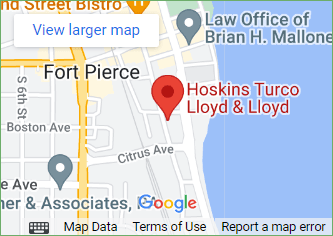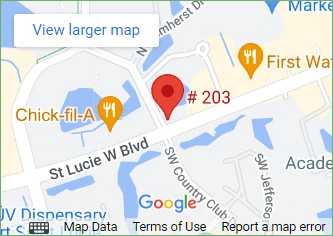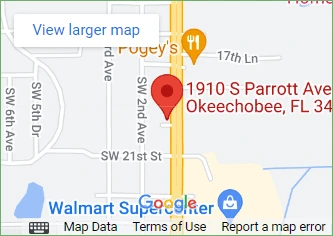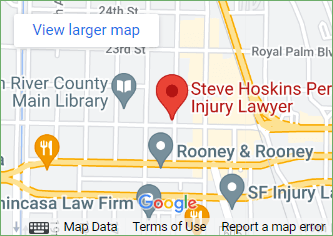Auto Accident Settlement
What Are the Most Common Types of Motorcycle Accidents?
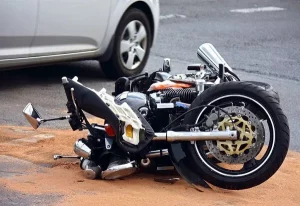
The Treasure Coast seems like it was made for motorcycle cruising. Long, flat stretches of highway are surrounded by beautiful scenery. When the weather plays along, it manages to be flat-out fantastic. A nice calm, balmy day, the open road, and a high-powered rocket being the only thing between you and the world — well, sometimes that’s the best things can be.
With all that freedom, there comes some responsibilities and realities. That’s a fact anytime you get out on the road, but it’s multiplied on a motorcycle. In a nutshell, motorcycles are dangerous, and any rider knows that and accepts it. The main reason is if you’re involved in any sort of accident — involving either the environment or another motorist — there’s nothing between you and the world as perhaps a couple of pounds of fiberglass and plastic and maybe a few yards of Kevlar and leather.
Every rider knows this, but it never hurts to brush up on the dangers hidden in the glory of the open road. Not just what can happen, but also how to prepare yourself to prevent as much damage as possible, and what to do afterward.
And when the legal system or insurance companies come into play, you might want the services of an experienced Florida motorcycle accident attorney. The law offices of Hoskins, Turco, Lloyd & Lloyd have the experience and resources to get you the compensation you need to get back out there. Call (866) 460-1990 or contact us online to schedule your free, no-obligation appointment now.
The Most Common Types of Motorcycle Accidents
Motorcycle “spill outs” are incredibly common, and they often involve just the rider. However, some of the most major accidents happen at high speeds and on busy roads. They often involve other drivers, even if the other driver happens to not make complete contact with the motorcycle before the accident occurs.
Multi-Vehicle Accidents
It may not seem fair, but motorcycle riders inevitably have to share the road with cars and trucks. Even worse, when other drivers aren’t always paying attention, they can easily miss a motorcycle in their mirrors and cause a catastrophic accident. Moving at high speeds — or even slower through communities and living areas — what might be a simple fender-bender with another car or truck turns deadly when a motorcycle is involved.
The most common motorcycle collision scenarios involving two or more vehicles include:
- Left-Hand Turn Accidents — An automobile’s natural blind spot in their A-pillar when making a left turn can be even deadlier for motorcycle riders. Far too often, a left turn is made without looking for cyclists cruising down the opposite lane. This can happen when a motorcycle is passing a vehicle, trying to overtake a vehicle, or most often when turning left through an intersection in front of oncoming traffic.
- Head-On Collision — Unsurprisingly, head-on collisions count for over half the fatal motor accidents. Whether it’s hitting a car or another motorcycle, head-on accidents usually involve high speeds and landing on hard pavement. This is more often than not catastrophic or fatal for the motorcyclist, either from the initial impact or what could happen from a fall.
- Inattentive drivers — Out on a highway, cars make lane changes without singling or looking for other drivers. They stop suddenly for reasons both good and stupid. When this happens, they’re obviously not thinking of you on your motorcycle.
Motorcycle Operator Errors
Like any other motor vehicle, a motorcycle comes with its own sets of skills, challenges, and responsibilities for safe and enjoyable driving. A lot of it is following the law or just plain common sense, and to ignore any of them is to court danger.
The following are some of the most common actions that can increase a motorcycle operator’s odds of a single-vehicle accident:
- Lane splitting — This maneuver is particular to motorcycles, and it involves zipping through the same lane as another vehicle while passing or turning. It’s tempting to think a motorcycle’s smaller size means drivers can operate outside of the typical limitations of a lane. After all, there’s plenty of room. But like passing on a shoulder is risky for cars, the danger in lane splitting is double for motorcycles. Some riders find themselves blocked in both lanes and try to cut in between vehicles ahead of them to get around. This is an incredibly bad idea, especially while traffic is moving, and it is against the law in Florida.
- Speeding — Speed limits are there for a reason. We all want to get where we’re going as quickly as possible. On a motorcycle, furthermore, it’s tempting to wind it all out and see how fast your two-wheeled rocket can go. But speed limits are there for a reason. Driving too fast reduces reaction time to other cars, and, bluntly, the faster you go, the worse the impact. Even a smaller car or fixed object can be deadly in the event of a high-speed collision. Riders are also more likely to run off the road when they understeer into a turn as a result of high speeds.
- Driving while intoxicated or under the influence — Another limit the law demands and common sense suggests is that you should never operate a bike under the influence. Motorcycles demand sharp thinking and total attention. Getting high or drunk robs you of your full facilities, and nearly half of all motorcycle facilities can be traced to drunk driving or driving under the influence of drugs.
Environmental Concerns
Bad weather, poorly maintained roads, and all the same things cars need to look out for are of exponentially greater concern for motorcycle drivers. These are perhaps the most dangerous because there’s really nothing you can do about them but be aware, drive at safe speeds, and be sharp during your travels.
- Hitting Fixed Objects — Simply put, if a motorcycle hits something that isn’t moving, the motorcycle usually loses. This can include everything from road signs to light poles to parked cars to buildings. Worse is having a car door suddenly open in front of you when drifting down a neighborhood street.
- Weather conditions — Things that aren’t even a consideration for cars could be deadly for motorcyclists. High winds, for example, are responsible for many accidents, and driving rain can make just keeping your bike upright a challenge. And just like with cars, slick roads can be responsible for accidents, especially on a warm day just after a quick rain. Florida gets a lot of those, and they make for a lot of bad roads and some unpleasant wrecks.
- Poorly maintained roads — Potholes, loose gravel, and crumbling pavement are issues for everyone on the road, but for a motorcycle, what would be a bumpy ride could turn deadly quickly. Hit a pothole that causes your front wheel to twist perpendicular to the bike, and that’s all she wrote. Specific to motorcycles, a patch of sand on the road or loose hay can cause a motorcycle to slip just as easily as an oil spill or pool of water.
Seeking Compensation After a Motorcycle Accident
Florida is the only state in the union that does not require motorcycle insurance. Nor are riders required to purchase the property and bodily injury insurance all Florida automobile owners must have to drive. You do need a special Class E license, and it’s highly recommended to purchase some insurance to protect against financial devastation should you find yourself in an accident. Even a small fender bender in a car can mean internal injuries, broken or fractured bones, or pavement scraping the skin off of a rider, called “road rash.”
But even with insurance, you might still need help. Insurance companies make their profit by not paying off claims, and even with the best intentions, the investigator of the insurance company you file with is searching for ways to pay the least amount they can, and sometimes that is just not enough to cover your full damages.
Before you call insurers, call us. The attorneys at Hoskins, Turco, Lloyd & Lloyd have nearly 40 years of experience servicing clients all across the Treasure Coast. We document your damages in full and work to encourage insurers to provide the maximum payout possible. If negotiations don’t produce the desired result, we are willing to take your case to court to seek the compensation you need. Schedule a free consultation to learn about your options today by calling (866) 460-1990 or contacting us online. The sooner you do, the sooner you may get back out on the open road.
Verdicts and Settlements
$1.2 Million
$1.6 Million
Wrongful Death Settlement
$11.1 Million
Settlement for motorcycle accident
Locations
Ft. Pierce, FL 34950
Suite 203, Port St. Lucie, FL 34986
Okeechobee, FL 34974
Vero Beach, FL 32960
The hiring of a lawyer is an important decision that should not be based solely upon advertisements. Before you decide, ask us to send you free written information about our qualifications and experience.
We are a debt relief agency and attorneys. We help people file for Bankruptcy relief under the Bankruptcy Code. The hiring of a lawyer is an important decision that should not be based solely upon advertisements. Before you decide, ask us to send you free information about our qualifications and experience.
Hoskins, Turco, Lloyd & Lloyd © 2020 All Rights Reserved. Terms of Use and Privacy Policy
This site is protected by reCAPTCHA and the Google Privacy Policy and Terms of Service apply.
